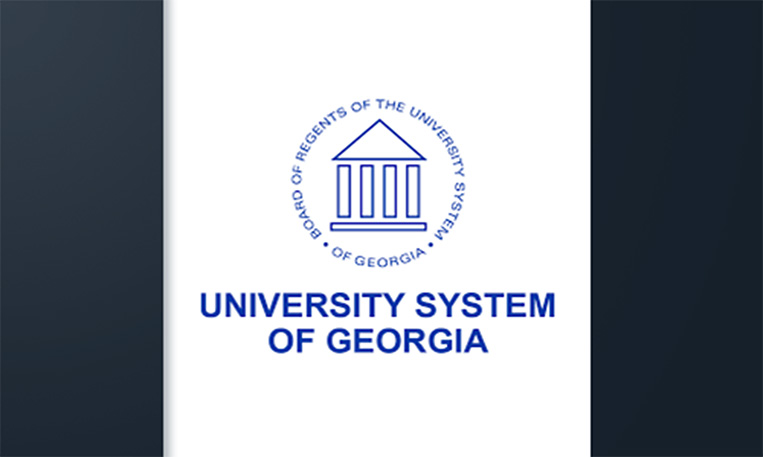
The Board of Regents of the University System of Georgia (USG) has announced it will conduct national searches to find the next presidents of Albany State University (ASU) and Savannah State University (SSU).
ASU President Marion Ross Fedrick announced last month her plan to accept a new role at Georgia State University as executive vice president and chief of staff, effective July 1, 2024. Fedrick will additionally serve as a senior advisor to Chancellor Sonny Perdue for initiatives related to the system’s three public historically Black colleges and universities, which include ASU, SSU and Fort Valley State University.
Cynthia Robinson Alexander, previously USG’s associate vice chancellor for finance, has served as interim president of SSU since July 2023 after the departure of President Kimberly Ballard-Washington. She will continue to serve as interim president during this time.
“The success of Georgia’s public HBCUs is vital for students, and they remain important to our mission to educate Georgia citizens for the 21st century,” Perdue said. “We want to find the best leaders who can build upon the work of their predecessors and help our institutions make sure students enter a highly skilled workforce ready to contribute and grow their own prosperity as well as the state’s.”
Both universities continue to play critical roles within the system and Georgia. ASU is USG’s largest HBCU, enrolling 6,599 students as of Fall 2023. Since its founding in 1903, ASU has prepared students for the state’s teaching workforce and is a critical partner in educating Georgia’s future nurses.
Savannah State increased enrollment this past fall to 3,099 students. As the oldest public HBCU in the state, it has a rich 134-year history in higher education that includes being the first institution of higher learning in the city of Savannah. Both institutions were among the university system’s original members.
USG will now initiate national searches to find the universities’ next leaders. This decision begins the process to name presidential search committees at each institution. Those committees, once finalized, will be announced at a later date.
About Albany State University:
Joseph Winthrop Holley founded Albany State University in 1903 as the Albany Bible and Manual Training Institute. The institution first received financial support from the state of Georgia in 1917. Designated as an agricultural and teacher training college, the institute was renamed The Georgia Normal and Agricultural College and in 1932, became part of the newly formed University System of Georgia.
Granted four-year status and renamed Albany State College in 1943, the school’s enrollment increased, and the college began offering its first graduate programs in 1981. The Board of Regents granted the institution university status in 1996, at which time it was renamed Albany State University.
ASU offers more than 35 undergraduate degree programs, of which the most popular majors are health and human performance, nursing, biology, management, criminal justice, early childhood education and psychology. ASU also offers graduate programs in multiple academic areas, including Master of Business Administration, Master of Education, Master of Science in Criminal Justice, Master of Public Administration, Master of Social Work, Master of Science in Nursing and an Educational Specialist degree.
About Savannah State University:
Founded in 1890 as a result of the Second Morrill Act, SSU moved from Athens to its permanent location in Savannah in 1891 and became a member of the newly formed University System of Georgia in 1932, at which time the institution’s name changed to Georgia State College.
The college served as Georgia’s land-grant institution for Black students until 1947, when the land-grant designation was transferred to what was then Fort Valley State College. In 1950, Georgia State College changed its name again, to Savannah State College. The Board of Regents granted the school university status in 1996, and the institution became Savannah State University.
SSU offers the region’s only four-year Naval ROTC program with tuition-assisted training in science and technology leading to commissioned service in the United States Navy and United States Marine Corps. SSU also has the only marine science undergraduate and graduate degree programs in Georgia based entirely on a coastal campus and is one of the few institutions in the country to offer a Bachelor of Arts degree in Homeland Security and Emergency Management.
USG


Chattooga Opinions
Medically Supervised Weight Loss: Inside Premier Weight Loss & Medispa

Chattooga Local News
Georgia Power Files Plan for Customer Rate Decrease with Public Service Commission

Chattooga Local Government
Carr Pushes for Permanent Halt of Medicare and Medicaid Funding for Child Sex-Change Procedures

Bulloch Public Safety
02/20/2026 Booking Report for Bulloch County

Bulloch Public Safety
01/26/2026 Booking Report for Bulloch County

Bulloch Public Safety
02/09/2026 Booking Report for Bulloch County

Bulloch Public Safety
02/16/2026 Booking Report for Bulloch County

Bulloch Public Safety
02/02/2026 Booking Report for Bulloch County

Bulloch Public Safety
01/30/2026 Booking Report for Bulloch County





